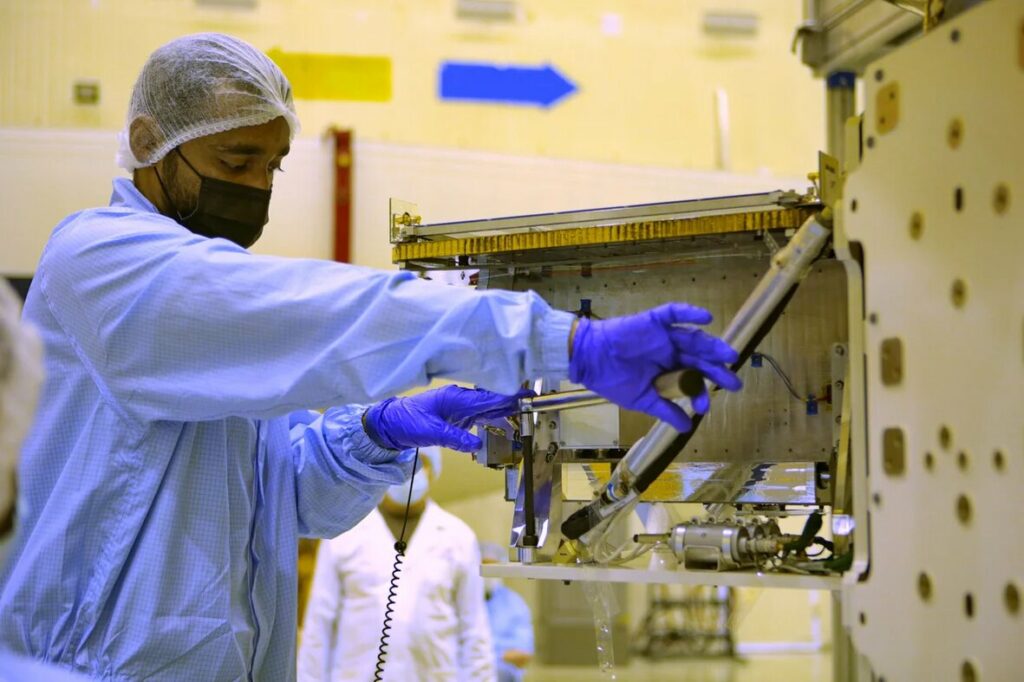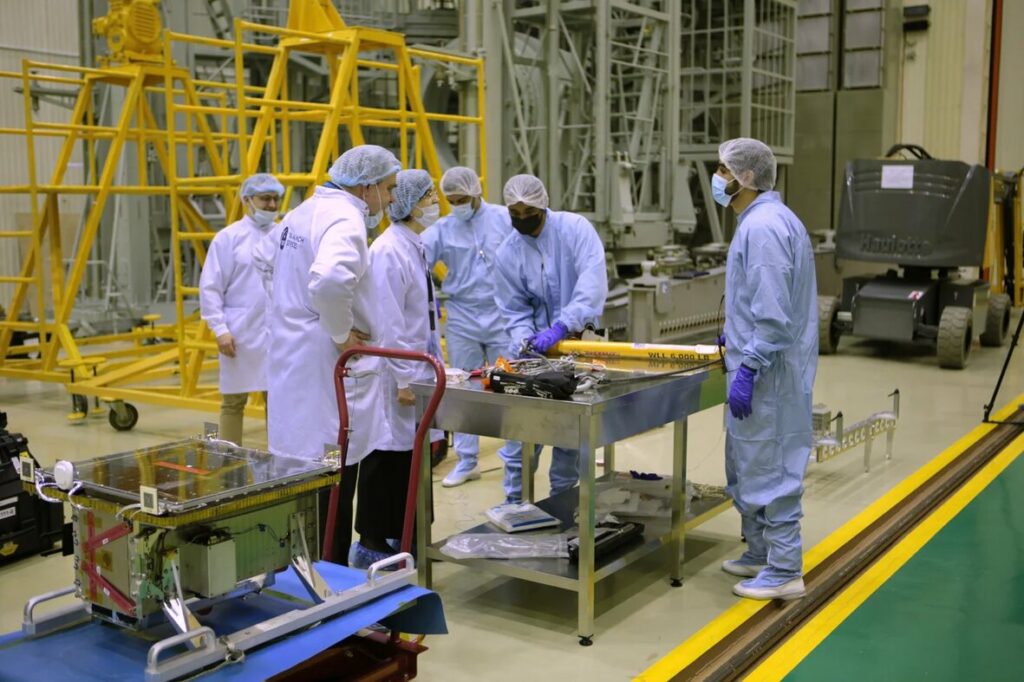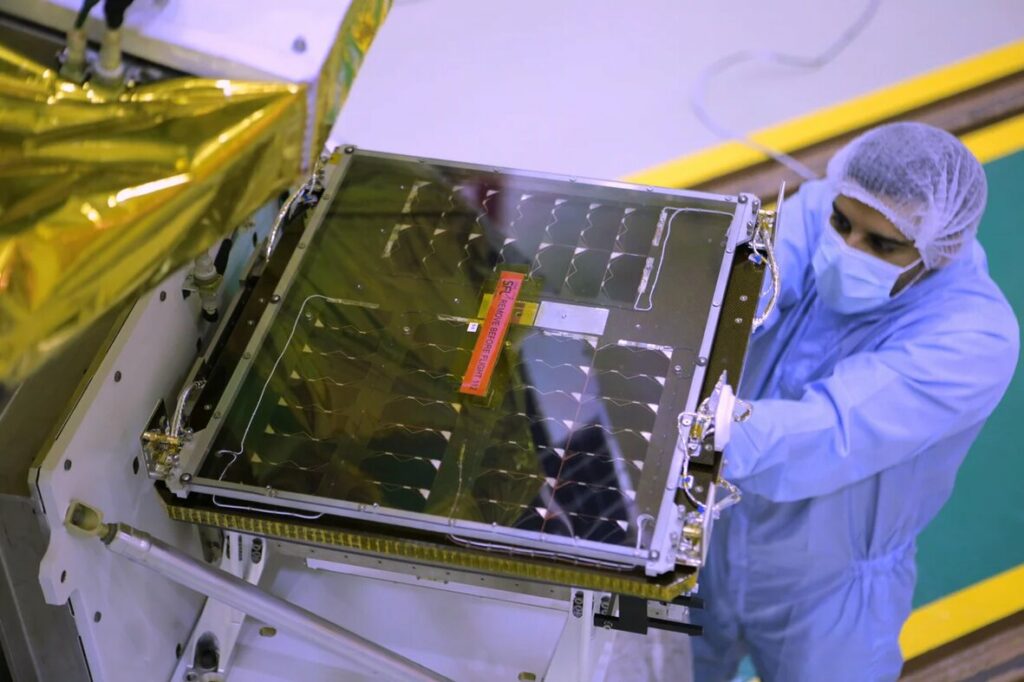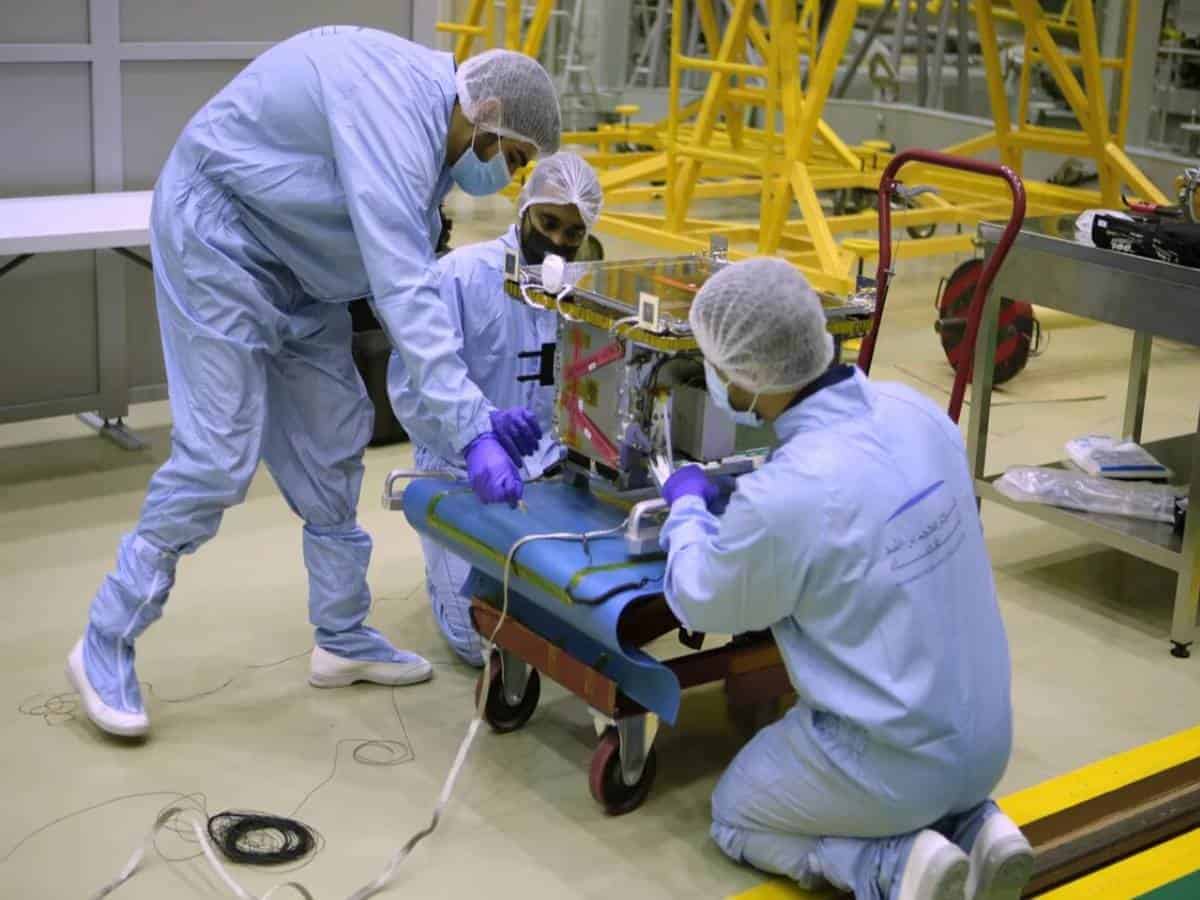Dubai: Dubai Municipality, in collaboration with the Mohammed Bin Rashid Space Centre (MBRSC), has announced that it is preparing to launch the DMSat-1 satellite, the region’s first environmental nanometric satellite, from Baikonur Cosmodrome in Kazakhstan on March 20.
The launch is part of a high-technology project undertaken to develop solutions to environmental challenges and address climate change.
Using state-of-the-art space technologies, DMSat-1 will monitor, collect and analyse environmental data as well as measure air pollutants and greenhouse gases.
The environmental satellite will also help create maps of the concentration and distribution of greenhouse gases in Dubai and the UAE and study seasonal changes in the presence of these gases.

Data provided by the satellite will be used in several areas including finding solutions to environmental challenges, developing long-term plans to address urban pollution and climate change and environmental forecasting in Dubai.
This data will also help enhance the emirate’s leading role in developing quality projects and pioneering research in the domain of climate change.
The DMSat-1 project will help build new capabilities in the field of environmental research at the local level, and provide new opportunities for harnessing space technology to enhance environmental sustainability.

“Essential data provided by the DMSat-1 satellite will enable Dubai Municipality to respond to global environmental changes, identify steps to combat climate change and develop long-term environmental plans,” Dawoud AlHajri, Director General of Dubai Municipality, said.
Yousuf Hamad AlShaibani, Director General, MBRSC, said that the emergence of new capabilities and competencies is helping the country expand its expertise in using space technology to provide solutions.
“Local institutions are increasingly interested in the space sector and in utilising advanced scientific methods to meet challenges. The launch of the DMSat-1 satellite supports the UAE’s aspirations in this field,” he said.

The launch of the satellite strengthens the UAE’s implementation of the Paris Climate Agreement, which requires the country to generate data on greenhouse gas emissions and build national capacities to study global warming.

